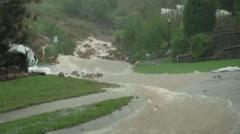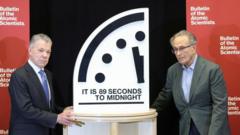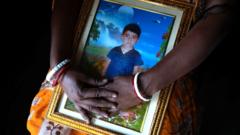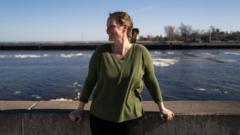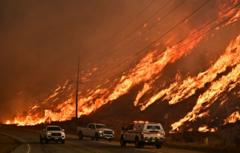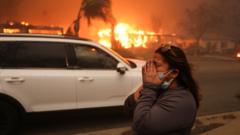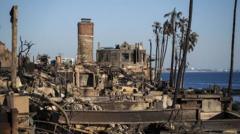**Research indicates urgent need for resilience and action against fossil fuels to mitigate future disasters.**
**Climate Crisis: Extreme Weather Events Intensified by Human Activity**
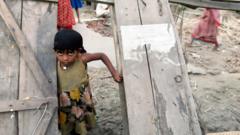
**Climate Crisis: Extreme Weather Events Intensified by Human Activity**
**New study reveals climate change's impact on deadliest weather events of the past two decades.**
Human-induced climate change has significantly intensified the ten deadliest extreme weather events of the last 20 years, as revealed by a new report from the World Weather Attribution (WWA) group at Imperial College London. The analysis indicates that storms, heatwaves, and floods across continents—including Europe, Africa, and Asia—have resulted in over 570,000 fatalities, underscoring the urgent connection between climate change and extreme weather.
Dr. Friederike Otto, WWA co-founder and lead researcher, stated, "This study should be an eye-opener for political leaders hanging on to fossil fuels that heat the planet and destroy lives." She emphasized that the continued reliance on fossil fuels is perpetuating human suffering and environmental chaos.
The study re-evaluated data from the International Disaster Database since 2004, marking the first comprehensive effort to link specific weather events, like a 2011 drought in Somalia that killed over 250,000 people, to climate change. Other incidents include the heatwaves in France in 2015 that claimed more than 3,000 lives, and the devastating European heatwaves of 2022 and 2023, which resulted in combined fatalities exceeding 90,000. The research suggests that the likelihood and intensity of these events have been exacerbated by human-caused climate change.
Additionally, cyclones and floods in countries like Bangladesh (2007) and India (2013) were significantly influenced by global warming. The researchers caution that actual death tolls could be underreported, particularly in developing nations where heat-related fatalities are often unrecognized.
This groundbreaking study, led by Dr. Otto and Dutch climatologist Geert Jan van Oldenborgh, employs advanced atmospheric models to illustrate how current climate conditions increase the frequency of extreme weather. By simulating both contemporary and pre-industrial climate scenarios, researchers can isolate the effects of fossil fuel emissions on weather events.
Roop Singh from the Red Cross Red Crescent Climate Centre emphasized the pressing need for countries to bolster their resilience in the face of the climate crisis. She warned that with each incremental rise in temperature, the risk of unprecedented weather events increases, threatening nations regardless of their preparedness.
The findings serve as a stark reminder of the ongoing climate urgency and the potential for increasingly severe weather if immediate action is not taken.
Dr. Friederike Otto, WWA co-founder and lead researcher, stated, "This study should be an eye-opener for political leaders hanging on to fossil fuels that heat the planet and destroy lives." She emphasized that the continued reliance on fossil fuels is perpetuating human suffering and environmental chaos.
The study re-evaluated data from the International Disaster Database since 2004, marking the first comprehensive effort to link specific weather events, like a 2011 drought in Somalia that killed over 250,000 people, to climate change. Other incidents include the heatwaves in France in 2015 that claimed more than 3,000 lives, and the devastating European heatwaves of 2022 and 2023, which resulted in combined fatalities exceeding 90,000. The research suggests that the likelihood and intensity of these events have been exacerbated by human-caused climate change.
Additionally, cyclones and floods in countries like Bangladesh (2007) and India (2013) were significantly influenced by global warming. The researchers caution that actual death tolls could be underreported, particularly in developing nations where heat-related fatalities are often unrecognized.
This groundbreaking study, led by Dr. Otto and Dutch climatologist Geert Jan van Oldenborgh, employs advanced atmospheric models to illustrate how current climate conditions increase the frequency of extreme weather. By simulating both contemporary and pre-industrial climate scenarios, researchers can isolate the effects of fossil fuel emissions on weather events.
Roop Singh from the Red Cross Red Crescent Climate Centre emphasized the pressing need for countries to bolster their resilience in the face of the climate crisis. She warned that with each incremental rise in temperature, the risk of unprecedented weather events increases, threatening nations regardless of their preparedness.
The findings serve as a stark reminder of the ongoing climate urgency and the potential for increasingly severe weather if immediate action is not taken.

